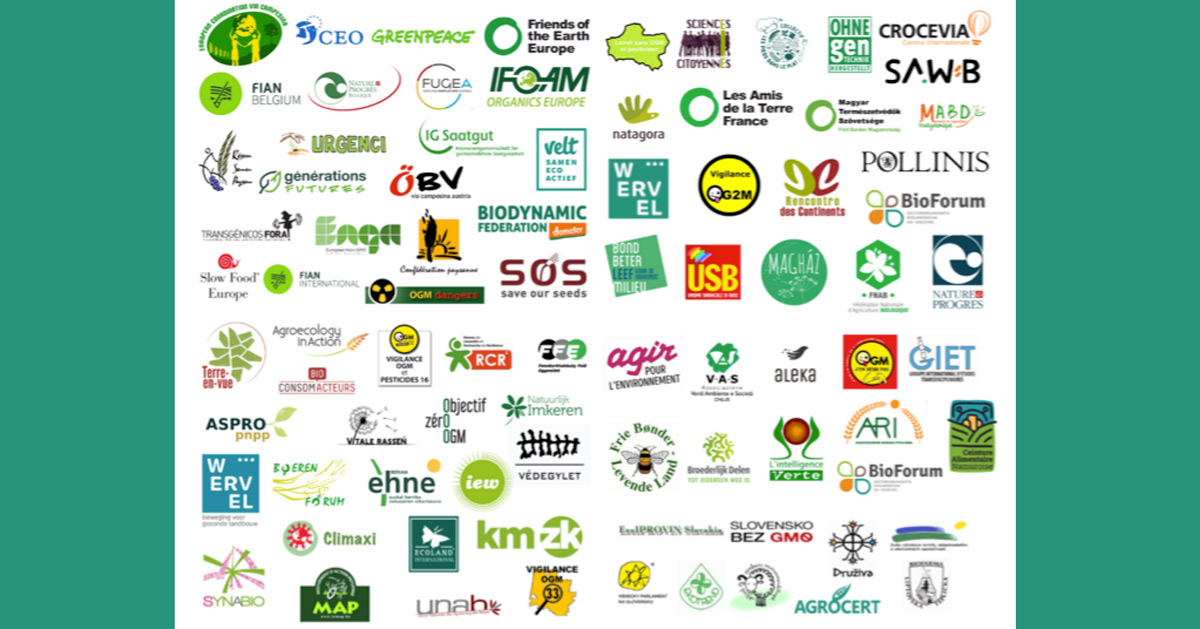
If Commission preempts the court, it risks drawing up a proposal that is inconsistent with the EU Treaty
Along with more than 80 national, European and international organisations, European Coordination Via Campesina (ECVC) has demanded in an open letter that the European Commission suspend its initiative to reform EU legislation on GMOs until the Court of Justice of the European Union (CJEU) publishes its clarifications concerning the status of new GM techniques in EU law, as requested by the French Council of State in November 2021.
These clarifications not only represent a key development in the current debate around the European Commission's initiative on new techniques of genetic modification, but also concern the application of fundamental principles of EU law, such as the precautionary principle and the principle of the separation of powers, on which EU food and environmental law is based. Signatories of the open letter have long since warned the European Commission that if it preempts the CJEU, it risks drawing up a proposal that is inconsistent with the EU Treaty (a binding agreement between EU member countries which sets out EU objectives, rules for EU institutions, how decisions are made and the relationship between the EU and its member countries).
For ECVC, the initiative to reform GMO legislation constitutes a clear push for the deregulation of new GMOs in the EU, and is absolutely incompatible with the 2018 CJEU ruling (case C 528/16), by which new GM techniques (or rather, organisms derived using the technique of new mutagenesis, often called new GMOs) are included in the legal definition of GMOs and must be regulated as such in EU law.
The initiative is preceded by a long history of misinformation, misinterpretation and legal battles in which the seed and biotech industries have pushed the European Institutions to deregulate GMOs, whilst peasant and environmental organisations have fought for the rights of all European citizens and peasants to know what they eat and sow, to remain GM-free and to maintain the seed autonomy of farmers.
Until the aforementioned 2018 ruling, the seed and biotechnology industry put increasing pressure on the institutions to exclude new GMOs from the GMO legislation. When this was made unfeasible by the CJEU ruling, the biotech and seeds industries started to put pressure on the Commission to reform the legislation altogether. It was in this context that the initiative to reform EU GMO legislation was introduced. Recently, various EU Member States have expressed their concerns about this initiative and the respect of the application of the precautionary principle, and reaffirmed their views that the current GMO legislation is fit for purpose.
The Commission’s reluctance to heed the principle of the separation of powers and delay the reform until the CJEU clarifications is yet further evidence that the legislative changes are being made to favour big industry actors. If the Commission rushes out a proposal without incorporating these important elements, it is acting in the interests of private entities and failing to respect the rights of EU citizens and farmers. Therefore, ECVC implores the Commission to listen to the call made in the open letter by more than 80 peasants’, environmental and civil society organisations. You can find more information about the timeline of related events below.
Timeline
- April 2021, European Commission concludes study on the status of new GM techniques in EU law stating current EU GMO law (Directive 2001/18) is “not fit for purpose for some new genomic [new GM] techniques and their products, and that it needs to be adapted to scientific and technological progress”.
- Following the study, European Commission initiates policy action to develop a “proportionate” regulatory framework for new GMOs. Intends to conclude the reform initiative in the second quarter of 2023, either with a proposal to amend the current regulation or to maintain it.
- September 2021, Commission publishes an inception impact assessment that pointed out "legal uncertainties" in the current EU legislation, resulting from the lack of a clear definition of the terms "mutagenesis", "conventionally used in a number of applications” and “long safety record”.
- November 2021, the French Council of State referred two new questions on GMOs to the CJEU, aiming to clarify two key points regarding these “legal uncertainties” (see below). Questions not only concern the sole application of Directive 2001/18, but also fundamental principles of EU law, such as the precautionary principle, on which EU food and environmental law is based.
- Second quarter of 2023, reform initiative is intended to be concluded.
Summary of points raised by French Council of State
(1) Should it be considered that plants that are modified through new techniques of genetic modification are, apart from this claimed modification, "equivalent in substance" to plants resulting from traditional breeding processes, or does the modification cover the entire genetically modified plant, which may present risks to health, the environment and agricultural systems?
(2) Can the risks resulting from the release of GM plants into the environment be solely assessed in the laboratory, or should they be assessed in the natural environment in which they are to be released?
Resources
See the publication, Incorporating Peasants’ Rights to Seeds in European Law, which includes ECVC demands concerning the strict retention and application of the current European legislation on GMOs.
https://www.eurovia.org/publication-incorporating-peasants-rights-to-seeds-in-european-law/
See ECVC's response to the revision process of the EU legislation on GMO
https://www.eurovia.org/ecvcs-response-to-the-revision-process-of-the-eu-legislation-on-gmo/
See ECVC publication New GMOs, Patents on Seeds and Peasants’ Rights to Seeds in Europe
https://www.eurovia.org/wp-content/uploads/2020/04/Fact-sheet-EN.pdf
Source:
European Coordination Via Campesina (ECVC)